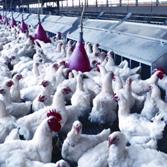England hosts workshops to help farmers understand new legislation

Workshops to help pig and poultry farmers across England understand new regulations to control pollution have been organised by the Environment Agency, National Farmers’ Union and pig and poultry industry organisations including the National Pig Association.
Rob Robinson, Agricultural Policy Manager for the Environment Agency said: “Farmers have told us they sometimes find new regulations daunting and difficult to understand.
“So it is important we communicate with them the in best way possible to make things as easy as we can for farmers. This is why we have been working closely with the farming industry organisations like the National Farmers’ Union to set up these workshops and put all the new legislation into context.”
In order to continue to operate legally, farms with places for more than 750 breeding sows, or 2,000 production pigs and poultry producers with more than 40,000 birds will have to apply for permits between November 2006 and January 2007. At present failure to comply could lead to fines of up to £20,000 or a three-month custodial sentence.
With around 1,200 producers estimated to be affected by the new legislation, both the Environment Agency and NFU are keen to ensure the application process is as straightforward as possible.
National Farmers’ Union Poultry Board chairman, Charles Bourns said: “We are supporting the Environment Agency to hold these workshops. They are a really useful opportunity for producers to get a handle on the new legislation and submit an application in time to meet the deadline.”
National Pig Association manager, Barney Kay said: “These workshops are an excellent opportunity for the producers to receive advice on completing their applications which should help eliminate errors in filling out the forms.”
For more information, visit the Environment Agency website.












